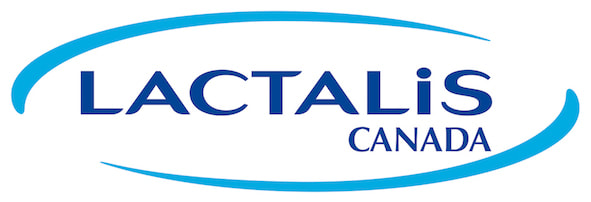|
Managing our businesses in challenging times It has been a time of evolving change since our last newsletter in April. In addition to the fallout from the COVID-19 pandemic, social unrest in North America and throughout the world has raised serious conversations about safety, job security, economic restructuring, physical and psychological wellbeing, and diversity and inclusion. In the last two months most dairy processors have settled into the ‘new normal’ and we want to acknowledge our members for responding quickly and thoroughly to the changing landscape. We would also like to express appreciation to the provincial milk boards keeping the milk supply flowing, and to our frontline workers for their hard work and dedication in keeping our communities safe, fed and healthy. COVID-19 has tipped the market balance with higher sales to the retail sector and dramatically lower sales to the foodservice/restaurant sector. Initially, this created severe volatility as provincial milk boards scrambled to adjust production while processors worked in overdrive to meet the increased demand for fluid milk and cultured products with more people staying at home. This, coupled with the drop in the restaurant business, led to short-term reductions in certain industrial product categories while public perception took a hit as the news media juxtaposed stories of raw milk disposal at the farm level against anecdotal accounts of shortages or out-of-stocks at grocery stores. To its credit, all facets of the industry – producers, processors and federal and provincial agencies – worked together to respond to the unpredictable market fluctuations in a time of crisis. All the while, WDC members wrestled with early stage absenteeism, the need to provide staff with personal protective equipment and the costs of restructuring workplace operations to accommodate social distancing directives. Now, as provincial governments in western Canada start to implement the phased, conditional relaxing of public health restrictions, processors again have to adapt to changes in the marketplace and the work environment. It’s a continuous challenge but, based on its performance over the past three and a half months, there’s little doubt that the industry is up for it. Finally, recent social unrest in the United States and around the world, including Canada, has exacerbated the strains and challenges of re-building our economy in the shadow of the pandemic. As the dairy industry does its part, it’s important to respect the gravity and importance of these issues even as we focus on restoring the marketplace to some semblance of normality. COVID-19 Resources For COVID-19 updates and information, visit the Government of Canada COVID-19 page or your provincial Ministry of Agriculture websites: BC Alberta Saskatchewan Manitoba Dairy Processors Association of Canada (DPAC) is also continuing to provide daily updates at http://www.dpac-atlc.ca/covid19-updates/ For information and resources specific to COVID-19 and the dairy industry from countries all over the world, visit the International Dairy Federation’s web page: https://www.fil-idf.org/mediaroom/covid-19-resources-for-the-dairy-sector/.The Western Dairy Council recently became a member of FIL-IDF Canada. Implementation of the Canada-US-Mexico Trade Agreement (CUSMA) On July 1, 2020 the Canada-US-Mexico Agreement (CUSMA), the comprehensive agreement governing trade between the three North American neighbours, officially came into force. By now, the specific provisions of the agreement are well known; for reference, the official text can be found at https://www.international.gc.ca/trade-commerce/assets/pdfs/agreements-accords/cusma-aceum/r-cusma-03.pdf. The July 1 start date was somewhat sooner than expected. This imposed severe constraints on dairy processors including limiting the time available to fulfill first-year export thresholds of skim milk powder and milk protein concentrates to just one month. It also required the industry to expedite the implementation of adjustments to its administrative and pricing systems, and the Government of Canada to quickly define its Tariff Rate Quota (TRQ) and Dairy Export Threshold policies in accordance with the agreement. In the end, the Canadian dairy industry has taken the necessary steps to comply with CUSMA and a new era (or New Environment, as some industry officials have taken to calling it) is upon us. Making these changes in the midst of a global pandemic has been a challenge and industry representatives across Canada should be commended for their dedication and hard work in preparing for July 1. For Western Dairy Council members, CUSMA has potentially far-reaching impacts, which will vary depending upon the nature of one’s business. Some of these impacts will be felt immediately, while others will not be evident for some time. For the past two months (and for a considerable time before that), WDC has been an active participant in most of the essential policy and technical discussions that have taken place to prepare for CUSMA’s coming into force. Members who still have questions about the agreement or its impact on their businesses are encouraged to contact us [email protected] for further information.
|
AuthorNews and Articles are posted by Members of the Western Dairy Council. Archives
September 2023
Categories
All
|




 RSS Feed
RSS Feed
